Gen. Raymond Odierno, Army Innovator, Passes Away
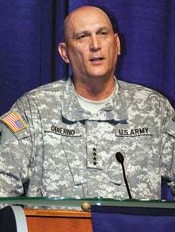 The former chief of staff of the U.S. Army, Gen. Raymond Odierno, USA (Ret.), died October 8 at age 67 after battling cancer. He was chief of the service from 2011-2015, the 38th such leader since the position began in 1903.
The former chief of staff of the U.S. Army, Gen. Raymond Odierno, USA (Ret.), died October 8 at age 67 after battling cancer. He was chief of the service from 2011-2015, the 38th such leader since the position began in 1903.
Over his 35-year illustrious career, Gen. Odierno led troops in every echelon and deployed to lead overseas operations in Germany, Albania, Kuwait and Iraq. He is most known for his leadership during Desert Shield, Desert Storm and Operation Iraqi Freedom.
During the Iraq War, the general led the U.S. Joint Forces Command (USJFCOM) 2010-2011 and U.S. Forces-Iraq 2009-2010. From 2008-2010, he was the commanding general of the coalition forces, guiding U.S., U.K., Australian, Spanish and Polish forces, and before that, between 2006-2008, served as the operational commander of coalition surge forces from the U.S., U.K. and Australia. From 2001-2004, the general was the commander of the 4th Infantry Division, in Iraq in 2003-2004.
In addition to his battlefield leadership, Gen. Odierno was instrumental in reshaping the USJFCOM. The general led the then-combatant command—which itself propelled a U.S. military transformation in the way the U.S. conducted Middle East operations with partners—through a revolutionary transition of its own. He took on the portentous task of evolving the USJFCOM into a completely new organization, as part of the Joint Staff J-7, and disestablishing the tradition command. He examined the command’s core functions to determine how to retain joint warfighting over time. And guided by the plans he and his staff developed, the general executed the move to the J-7, Joint Force Development, making the transition as smooth as possible, SIGNAL Magazine reported in 2011.
Another part of his legacy was Gen. Odierno’s creation with then-Army Secretary John McHugh of the service’s cyber school in 2014, which graduated its first class of students from the Cyber Basic Officer Leadership Course in the spring of 2015. That historic move was a significant first step in building the Army’s cyber career fields. The general saw the need for cyber soldiers highly trained to Army and joint standards that could support cyber commanders at strategic, operational and tactical levels, to conduct defensive cyber operations, offensive cyber operations and electronic warfare.
In an October 8 statement, Secretary of Defense Lloyd Austin referred to the general’s “strong legacy of leadership” and noted how Gen. Odierno set out to create an “Army of the future," intent on designing a force “that was agile, innovative, adaptable” and led by adroit leaders with integrity.
“Throughout nearly four decades in uniform, Ray Odierno served his country with great dignity and courage,” Secretary Austin said. “He led bravely in peace and in war. And he mentored an entire generation of future leaders. Ray was known for his loyalty—to mission and to his people. He cared deeply about the troops who knew him as ‘General O,’ and he and Linda looked after the families of those troops as if they were their own. From training and equipment to mental health and education, the Odiernos remained tireless advocates for the health and welfare of those who serve.”
Gen. Odierno, who was from Rockaway, New Jersey, was a 1976 graduate of the U.S. Military Academy at West Point, majoring in engineering and commissioning in field artillery. The general also earned a master’s degree in nuclear effects engineering from North Carolina State University, studied at the Army War College, and from the Naval War college, earned a master’s degree in national security and strategic studies.
During his service, Gen. Odierno was the recipient of many notable awards and decorations, including: four Defense Distinguished Service Medals, two Army Distinguished Service Medals, the Defense Superior Service Medal, six Legion of Merit awards, the Bronze Star Medal, the Defense Meritorious Service Medal, four Meritorious Service Medals, the Army Commendation Medal, the Army Achievement Medal and the Combat Action Badge.
In addition, the general shared his knowledge and experience with the military and technology community, speaking at several AFCEA Headquarters and chapter events over the years.
"I had the pleasure of serving with Gen. Odierno when he was the assistant to the chairman of the Joint Chiefs of Staff and I was the Joint Staff J-6," said Lt. Gen. Robert Shea, USMC (Ret.), president and CEO, AFCEA International. "He was a thoughtful man of integrity and a leader whose perspectives and advice were always welcome."
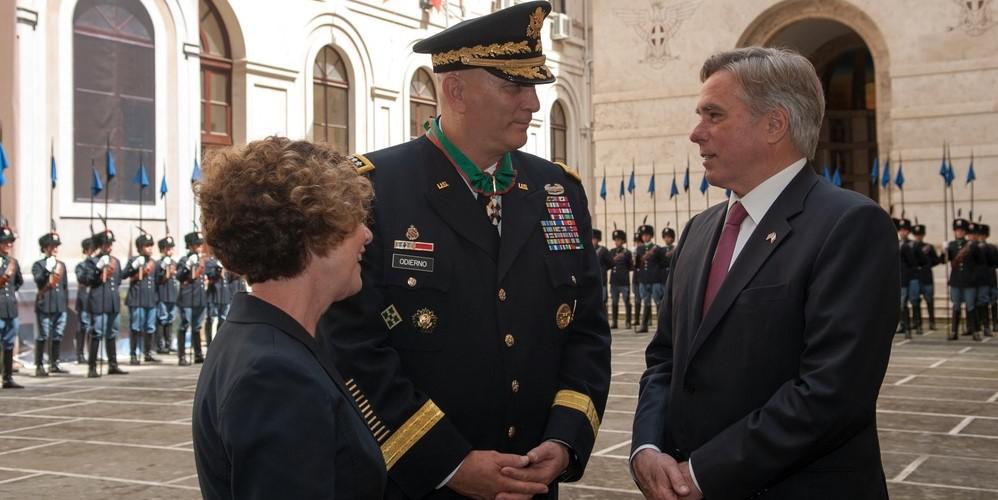
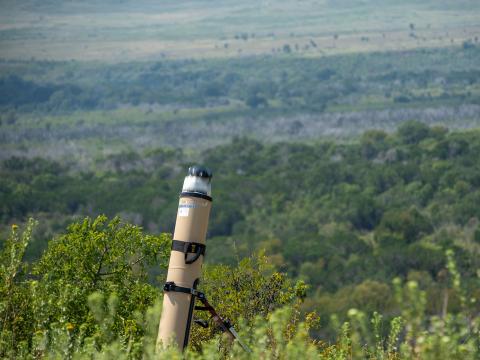
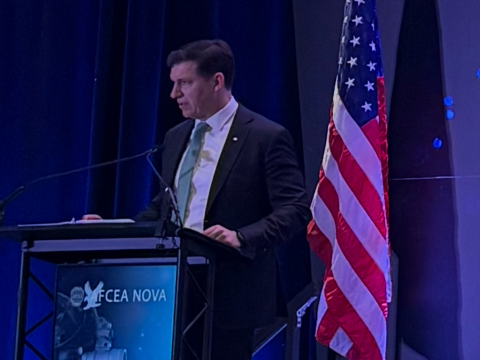
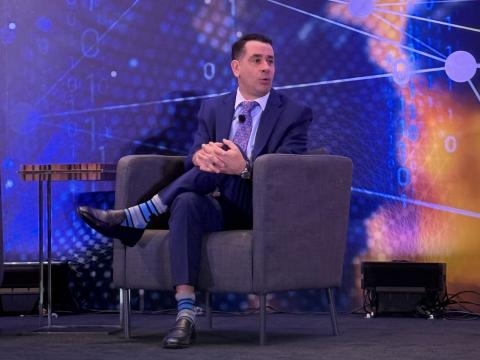
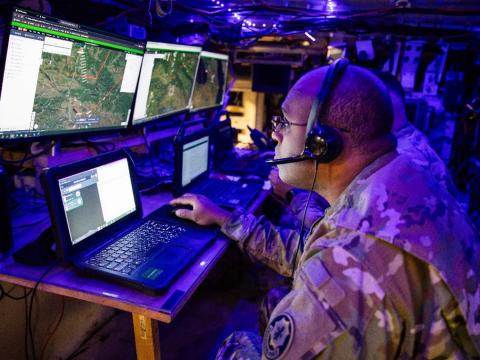
Comments